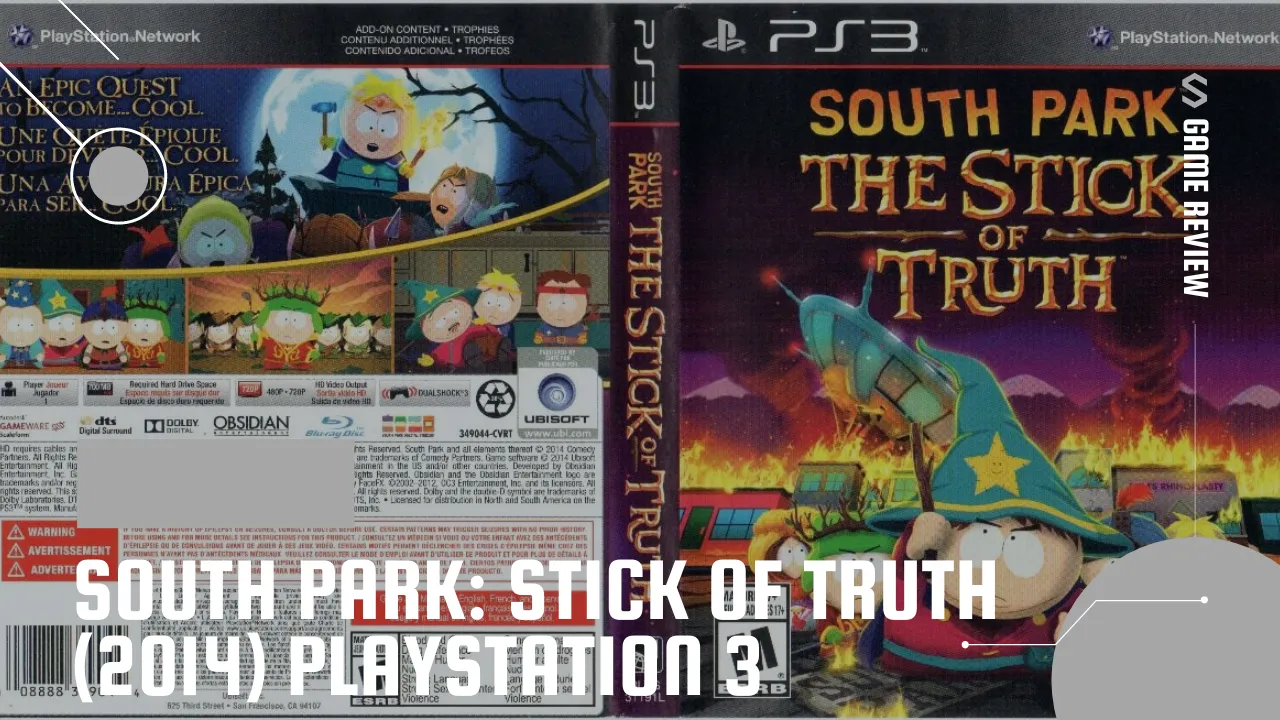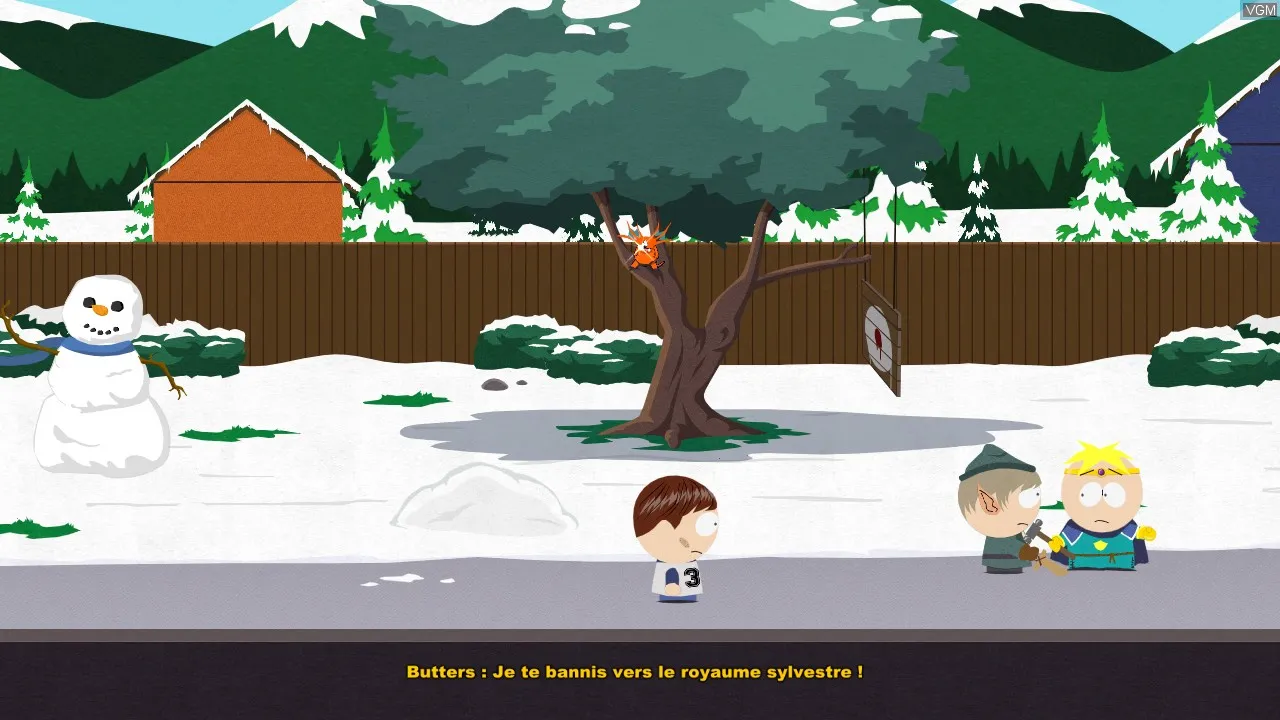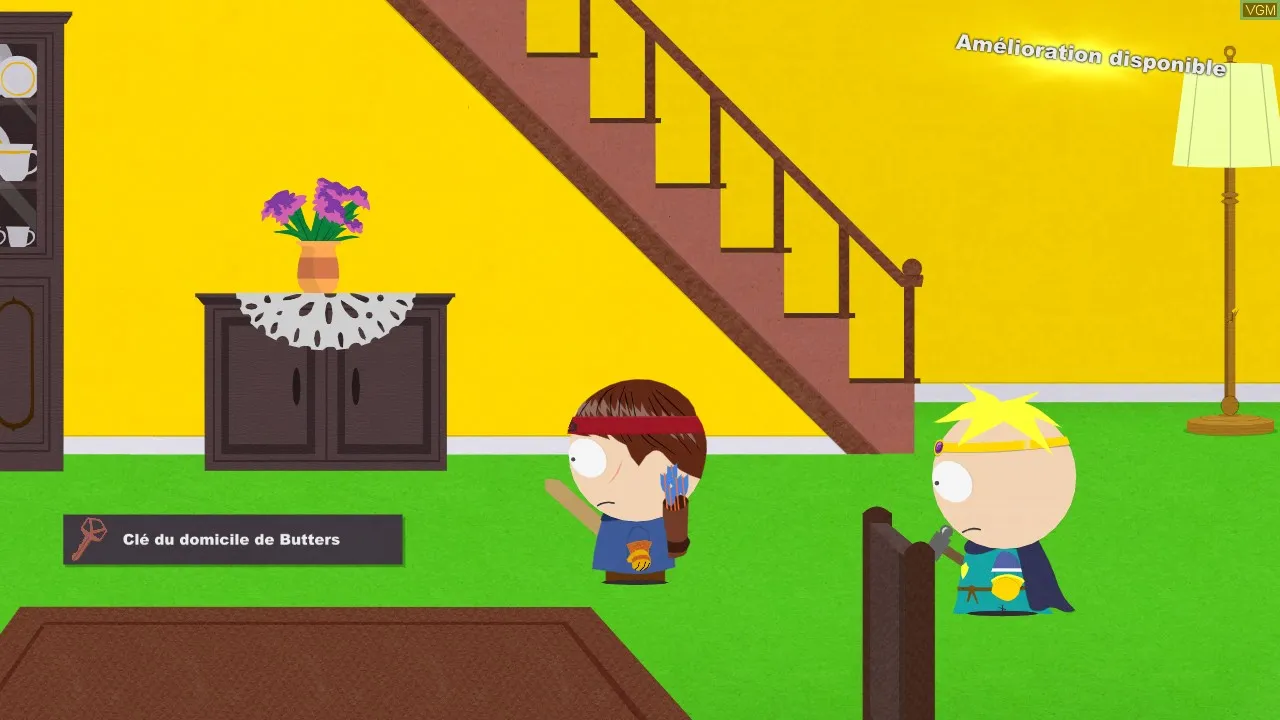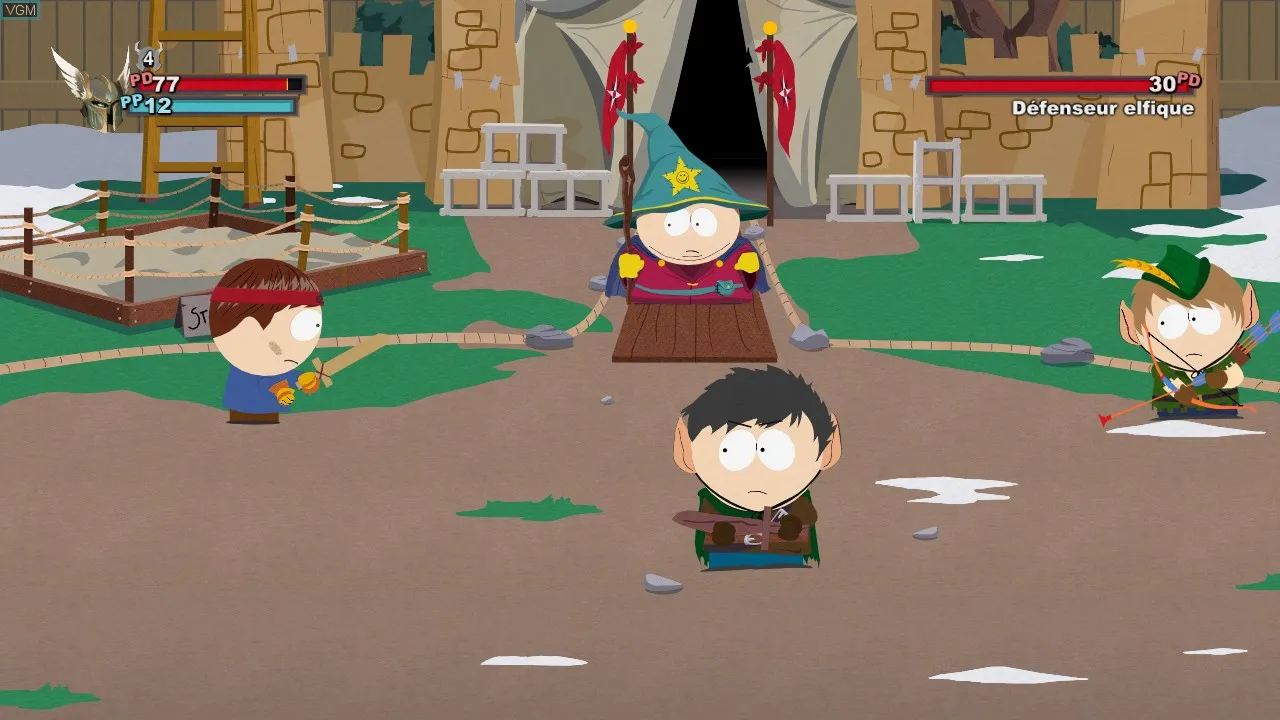
Part of me was always a little nervous about this. South Park: The Stick Of Truth mixing the foul-mouthed obsession of my youth with the cast-iron tropes of a traditional turn-based RPG. “South Park?” I’d wonder aloud. “Actual South Park? In an RPG? Surely this isn’t going to work?”
So could this entry break South Park’s turd-shaped streak and finally deliver a decent videogame? Yes. A Mecha-Streisand-sized yes. You see, somewhere between all those delays and a change in publisher, something’s clicked and out’s popped one of the most enjoyable and, more importantly, one of the most accessible turn-based RPGs in years. Sure, it sounds like I’ve lobbed that statement in there to make a sentence sound pretty, but it’s the feat of balance at the heart of The Stick Of Truth that makes the whole experience work so well.
You play the New Kid, a blank-faced young whippersnapper who’s just moved to South Park. Your parents seem keen to steer the conversation away from your past and instead throw you out the door to meet your fellow citizens. Meeting the many characters of this famous town is more than just a way of ticking off the roster. It turns interacting with characters from a simple RPG trope into a collectable addiction that rewards you with helpful, attribute-boosting perks the bigger your friends list becomes. Each time you speak to and complete a specific task for certain NPCs, they’re added to your social media-style menu screen.

Once you start exploring, you’re soon dragged into a secret fantasy war raging between Cartman’s Kupa Keep warriors and Kyle’s Drow Elves. It’s all very meta, and it’s the kind of conceit that could get old pretty quickly, but this isn’t some cheap tie-in game that’s been farmed out to make a few quick bucks. Matt Stone and Trey Parker have written a story that’s constantly changing, splitting the action up into days, with a story that keeps surprising you with new twists and turns.
You get to choose from four classes – Warrior, Mage, Thief, and Jew (a paladin-style class). Choosing a class is permanent, but the party system Obsidian has put in place means you can still use the various classes in battle – the catch being you can only upgrade your skills as you level up. You start off with blonde doofus Butters, but you can swap them in and out while exploring by pressing Select in exploration or via their radial wheel in combat. These buddies are party members who follow you around and serve as a separate turn in battle. Each buddy has vastly different skills in a scrap (Jimmy’s health-buffing ballads are instrumental), and learning to match the right party member with the proper fight is one of the ways the combat works so brilliantly.

When it comes to battling, selecting your attack is easy, with a simple radial wheel that shows your currently available moves. Depending on your choice of class, you have a selection of Abilities to choose from (such as the Jew classes’ ricocheting Sling Of David), as well as magical attacks that use farts as grenades.
Selecting the right weapon is essential. These are essentially enhancement boosts that imbue your weapon with additional powers or helpful buffs. Your clothing can also be modified with Patches, so mixing and matching for the best armor score adds a pleasing sense of nuance that will appeal to the veterans among you.
These elements are still pretty standard fare for an RPG, but the attention to detail gives this game something fresh and exciting. Every scene is filled with gags and in-jokes – as well as tasks that are hidden away that spiral into the ridiculously offensive moments that South Park does so well. From fighting a giant, zombified fetus to simply hearing Butters try and stick up a bank while you’re there to complete a quest, The Stick Of Truth is a genuinely funny videogame. Sure, we’ve had games pull on our heartstrings plenty of times as of late, but cause tears of laughter? Now that’s something special.

The problem is that this doesn’t cast the net wide enough in terms of places to explore. South Park proper is there for the taking, but compared to the realms, dimensions, and galaxies we’ve seen in the show, a little snowy mountain town can feel too-watered down in scope.
Some issues drag the experience down, though. For an RPG, the save system is frustrating at best. You can’t save your game in its current state; despite having a ‘Save Game’ option in the start menu, it will only save your progress from the last checkpoint. So if you die in a battle, you will lose all your hard work up to that battle.
But, those niggles aside, The Stick Of Truth is an enriching RPG experience. While the basic battle system is easy to get to grips with, it’s pleasingly unforgiving. Fail to examine an enemy and size up their weaknesses, and you could waste a valuable turn. If you don’t hit the flashing sweet spot when defending yourself, you could end up grossed out (poisoned) or left with a cut that’s slowing sapping your health. Learning the strengths and weaknesses of you and your buddy’s move set is a vital part of the game, and once you start experimenting and playing with the right tactics, Colorado is yours for the taking. Who knew that a turn-based adventure would be the genre that most suited a South Park videogame? The Stick Of Truth is only held down by unnecessary framerate difficulties and a lack of extra locales beyond South Park proper while having some of the most incredible language and characters in the game.